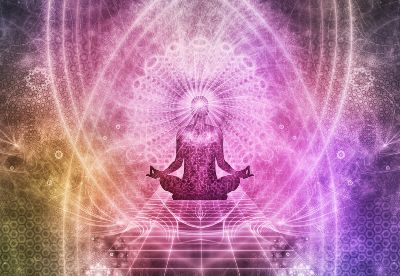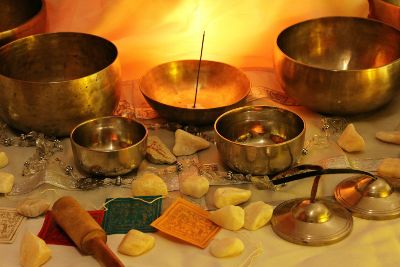
Basic Ayurveda Course
Ayurveda is the Science of Life, Ayu (life + science) Veda (knowledge).
It is an Eternal Science, without beginning or end, traces of which are found more than 5 thousand years back. Ayurveda is a science that looks into all the aspects of human health, not just the physical but the mental, emotional, spiritual, and the health of the environment. It treats the patient as a whole and not just the disease as a separate issue. It encompasses all aspects of human well-being, from breathing to digestion.
Ayurveda is the health science which greatly emphasizes on the prevention of disease and has a holistic approach of treatment. It is system which can support and enhance one’s health right from birth till the end of life.
According to Ayurveda, good health is not mere absence of disease in a human body, but a human is called truly healthy when his/her the appetite is strong, the tissues (dhatus) are properly integrated and functioning normally, the humours (the doshas: vata, pitta and kapha) are in balance, the fires (agni) are in equilibrium, the bodily waste elimination is regular and well and last but not the least, the spirit, mind and senses are clean, bright and experiencing joy.
Seasons and diet is an important part of Ayurveda. Ayurveda emphasizes that diet should be as per the season as the seasons have a strong effect on the diet.
Not only in different seasons but also different hour of the day, food has a different impact on every individual depending on the constitution of the body.
In human body different attributes (Doshas) are prevalent at different times of the day and during the different seasons. Ayurveda suggests to change with the change in environment to maintain a good health. It strongly believes that we all are microcosm of what’s going on in our environment, this causes physiological changes in our body. So certain changes and restrains should be followed in diet during different hour of the day and different season.
Ayurveda is an economical form of medicine as its elements are found in the nature, and uses minerals and plants therapeutically as its method of treatment.
The Ayurvedic treatments also compliment other forms of medicine. Some of its treatments (as prescribed by the doctors) can be done along with other forms of medication and it aids the healing process.
In case of deep-rooted, chronic ailments, Ayurveda gets in to the core of the issue and works on eliminating the disease from the root providing cure and deep purification of the entire system.
Program:
Introduction to Ayurveda
Eight branches of Ayurveda
Important Ayuvedic texts
Panchamahabhutas: The 5 basic elements
– Akasha – Space
– Vayu – Air
– Agni – Fire
– Jala – Water
– Prithvi – Earth
Tridosha (3 humors of the body) (Body function)
– Vata: (Air) (Neurologic and movement)
– Pitta: (Fire) (Metabolic)
– Kapha: (Water) (Structural composition and strength)
Vata Diet
Pitta Diet
Kapha Diet
Concept of Ama
Trimalas (3 types of Body waste)
– Mutra: Urine
– Pureesha: Feces
– Sweda: Sweat
Saptadhatus (Support; Support) (7 dhatus) Dhatus’ Body System
– Rasa: Blood Plasma-Lymphatic System
– Rakta: Blood Cells-Circulatory System
– Mamsa: Muscular System
– Meda: Body Fat
– Asthi: (Bone) Skeletal System
– Majja: Bone Marrow
– Shukra: Reproductive System
Concept of Agni
Concept of Koshta
Home Remedies
Prakruti: Constitution
– Different in each individual; Unique; mind-body
Dinacharya (Daily Routine)
Food: Costums and Maners
Natural Healthy Drinks for common diseases
Dosha Vaishamya (Dosha Imbalance)
Dhatus Vaishamya (Dhatus Imbalance)
Digestion & digestion tips
Ritucharya: Seasonal Diet
Mala Vaishamya (Mala Imbalance)
Vegas: Natural Urges
Ayurvedic Therapies: Introduction to Panchakarma
For more information about the Basic Ayurveda Course please Contact Us.
Address: Cabarete, Puerto Plata, Dominican Republic.
WhatsApp / Phone: +34 662 07 88 55
Email: [email protected]






